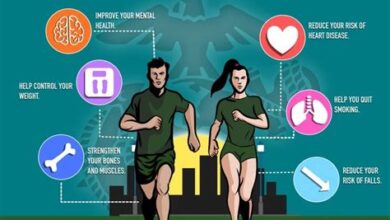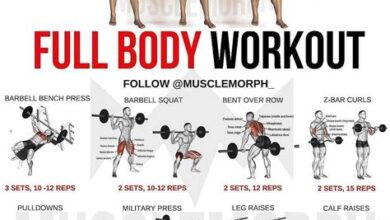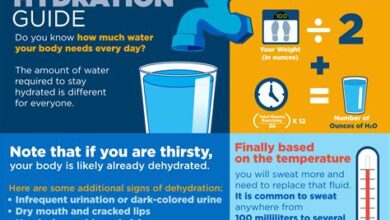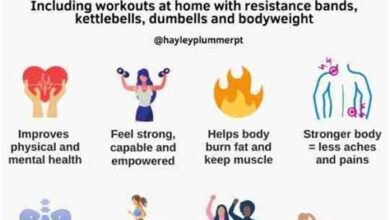How to Create a Balanced Diet for Optimal Health

Learn how to understand balanced diet, identify nutrient needs, plan meals and snacks, incorporate variety of foods, and monitor/adjust your diet for optimal nutrition.In today’s fast-paced world, maintaining a balanced and healthy diet has become increasingly challenging. With so much conflicting information and fad diets, it can be overwhelming to know where to start. However, creating a balanced diet for optimal health doesn’t have to be complicated. In this blog post, we will break down the essential components of a balanced diet and provide practical tips for incorporating variety, identifying nutrient needs, and planning meals and snacks. We will explore the importance of monitoring and adjusting your diet to ensure you are meeting your individual needs. By understanding the fundamentals of a balanced diet and learning how to make small, sustainable changes, you can take control of your health and well-being. So, join us as we dive into the world of nutrition and discover how to create a balanced diet that will leave you feeling energized and nourished.
Understanding Balanced Diet
In today’s world, the term balanced diet is thrown around a lot, but what does it really mean? A balanced diet is one that contains all the necessary nutrients required for optimal health. This includes a mix of carbohydrates, proteins, healthy fats, vitamins, and minerals in the right proportions. Understanding what these nutrients are and where to find them is essential in creating a well-balanced diet.
When we talk about carbohydrates, for example, it’s important to note that not all carbs are created equal. Whole grains such as brown rice, quinoa, and oats are a better choice than refined grains like white bread and pasta. Proteins are also crucial for a balanced diet, and can be found in lean meats, poultry, fish, and plant-based sources such as beans and lentils. It’s essential to include a variety of these protein sources in your diet to ensure you’re getting all the necessary amino acids your body needs.
Lastly, healthy fats, vitamins, and minerals can be found in foods such as avocados, nuts, seeds, fruits, vegetables, and dairy products. Understanding where to find these essential nutrients in the right proportions will ensure that you’re meeting your body’s nutritional needs and maintaining a balanced diet.
Identifying Nutrient Needs
When it comes to creating a balanced diet for optimal health, it is important to start by identifying your nutrient needs. Every individual has unique nutritional requirements based on factors such as age, sex, weight, and activity level. By understanding these needs, you can tailor your diet to ensure that you are consuming the right amount of essential nutrients to support overall health and well-being.
One way to identify your nutrient needs is to consult with a healthcare professional or qualified dietitian. They can assess your current diet and lifestyle and provide personalized recommendations for meeting your specific nutritional requirements. Additionally, there are various tools and resources available online that can help you calculate your daily nutrient needs based on your individual characteristics and goals.
It is also important to consider any specific health conditions or dietary restrictions you may have when identifying your nutrient needs. Certain medical conditions or allergies may require you to adjust your nutrient intake to accommodate for these factors. By taking these considerations into account, you can ensure that your diet is tailored to support your overall health and well-being.
Planning Meals and Snacks
When it comes to planning meals and snacks, it’s important to consider the nutritional needs of your body. Planning meals around a balanced diet that includes a variety of nutrients such as proteins, carbohydrates, fats, vitamins, and minerals is crucial for optimal health. This means incorporating a mix of whole grains, lean proteins, healthy fats, and plenty of fruits and vegetables into your daily menu.
It’s also essential to think about portion sizes and meal timing. Ensuring that you have regular, balanced meal and snack times throughout the day can help maintain steady energy levels and prevent overeating. This might involve planning out your meals and snacks ahead of time, so that you have healthy options readily available when hunger strikes.
Lastly, don’t forget to consider your lifestyle and personal preferences when planning meals and snacks. Whether you’re someone who prefers smaller, more frequent meals, or larger, less frequent ones, it’s important to find a plan that works for you and keeps you satisfied throughout the day. By taking the time to carefully plan your meals and snacks, you can set yourself up for success when it comes to nourishing your body and maintaining optimal health.
Incorporating Variety of Foods
When it comes to creating a well-balanced diet, one of the key factors to consider is the incorporation of a variety of foods. Including a diverse range of foods in your meals not only ensures that you are getting a wide array of nutrients, but it also makes your diet more interesting and enjoyable. By incorporating different fruits, vegetables, whole grains, lean proteins, and healthy fats, you can provide your body with the essential vitamins, minerals, and antioxidants it needs to function optimally.
One way to ensure that you are incorporating variety in your diet is to make sure that you are consuming foods from all the different food groups. This means including plenty of colorful fruits and vegetables, whole grains, lean proteins such as poultry, fish, and beans, and healthy fats like avocados, nuts, and olive oil. By aiming to include foods from each of these groups in your daily meals, you can be sure that you are getting a diverse range of nutrients.
Another strategy for incorporating variety in your diet is to make an effort to try new foods and recipes on a regular basis. This could mean experimenting with different types of cuisines, trying out exotic fruits and vegetables, or incorporating unfamiliar grains and legumes into your meals. By exploring new foods, you can expand your palate and ensure that you are not getting stuck in a rut with the same old meals day after day.
Monitoring and Adjusting Diet
It’s important to monitor your diet closely in order to ensure that you are getting all the necessary nutrients for optimal health. Keeping a food diary can be a helpful way to track your daily intake of food and beverages. By recording what you eat and drink, you can identify any gaps in your diet and make adjustments as needed.
When it comes to adjusting your diet, it’s essential to consider your individual nutrient needs. This may involve consulting with a registered dietitian or healthcare professional to develop a personalized plan that meets your specific requirements. Whether you need to increase your intake of certain nutrients or make dietary changes to manage a health condition, it’s important to make informed decisions based on expert guidance.
Regularly assessing your dietary habits and making necessary adjustments can have a positive impact on your overall health and well-being. By monitoring and adjusting your diet as needed, you can ensure that you are providing your body with the essential nutrients it needs to function at its best.





